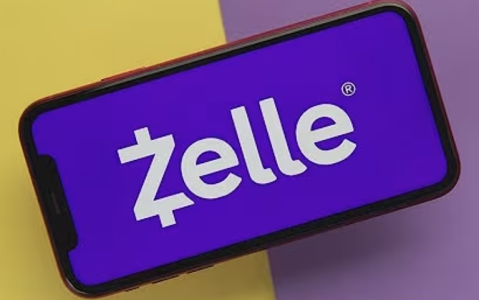Major lawsuit targets popular payment service over security concerns
By
Veronica E.
- Replies 0
Sending money to a friend, paying a contractor, or gifting cash to a grandchild has never been faster thanks to digital payment apps like Zelle.
With more than 150 million users, it’s one of the most widely used transfer tools in the country—promoted as quick, easy, and secure.
But a new lawsuit from New York Attorney General Letitia James is casting doubt on that last claim.
The legal action alleges that Zelle’s parent company, Early Warning Services, failed to implement even basic safeguards, allowing scammers to steal over $1 billion from unsuspecting customers in recent years.
The case is prompting many users to question whether the convenience of instant transfers is worth the potential risks.

On Wednesday, AG Letitia James filed a lawsuit against Early Warning Services (EWS)—the company that operates Zelle and is co-owned by major banks including Bank of America, JPMorgan Chase, and Wells Fargo.
The complaint accuses EWS of negligence for not putting in place sufficient anti-fraud protections, making the platform a prime target for scammers between 2017 and 2023.
The lawsuit points to flaws in Zelle’s design, including a quick registration process with minimal verification, which allegedly allowed fraudsters to create fake accounts and trick users into sending money to the wrong person.
Because Zelle transactions are instant and generally irreversible, recovering stolen funds is often impossible.
Launched in 2017 with the promise of being a “faster, safer way” to transfer money, Zelle quickly became a top choice for peer-to-peer payments.
But according to the lawsuit, EWS knew from the start that its system was vulnerable to fraud.
The AG claims the company failed to enforce anti-fraud rules across its partner banks, further increasing risks for consumers.
The limited transaction details shown to users made it easier for scammers to impersonate trusted contacts or businesses, sometimes using email addresses or phone numbers that closely resembled the real ones.
In a statement to CBS News, a Zelle spokesperson dismissed the lawsuit as a “political stunt” and a “copycat” of a similar case brought by the Consumer Financial Protection Bureau, which was later dismissed.
Despite this, the New York AG’s office is seeking restitution for affected users and a court order requiring Zelle to improve its fraud prevention measures.
The outcome of this case could influence how other payment platforms address user security moving forward.
If you use Zelle—or have an account with one of the banks that owns it—this lawsuit is worth paying attention to.
Payment apps have become a major target for scammers, and unlike credit cards, bank-linked apps like Zelle often offer little recourse for recovering stolen money.
Fraud tactics can include impersonating your bank, relatives, or legitimate businesses.
Tips for protecting yourself include:
Zelle isn’t the only app facing scrutiny.
Other services like Venmo, Cash App, and PayPal have also dealt with rising fraud cases.
As more people move away from cash and checks, these platforms must balance convenience with better protections—particularly for older adults, who are often targeted by scammers.
The New York AG’s lawsuit could set a precedent for how digital payment companies are held accountable for security gaps.
Read next: 7 sneaky scams draining bank accounts—how to protect yourself now

Have you or someone you know experienced fraud through a payment app? What steps do you take to ensure your money stays safe when transferring funds online?
With more than 150 million users, it’s one of the most widely used transfer tools in the country—promoted as quick, easy, and secure.
But a new lawsuit from New York Attorney General Letitia James is casting doubt on that last claim.
The legal action alleges that Zelle’s parent company, Early Warning Services, failed to implement even basic safeguards, allowing scammers to steal over $1 billion from unsuspecting customers in recent years.
The case is prompting many users to question whether the convenience of instant transfers is worth the potential risks.

Protecting your money in the digital age requires staying alert and informed. Image Source: YouTube / 10 Tampa Bay.
The case against Zelle’s parent company
On Wednesday, AG Letitia James filed a lawsuit against Early Warning Services (EWS)—the company that operates Zelle and is co-owned by major banks including Bank of America, JPMorgan Chase, and Wells Fargo.
The complaint accuses EWS of negligence for not putting in place sufficient anti-fraud protections, making the platform a prime target for scammers between 2017 and 2023.
The lawsuit points to flaws in Zelle’s design, including a quick registration process with minimal verification, which allegedly allowed fraudsters to create fake accounts and trick users into sending money to the wrong person.
Because Zelle transactions are instant and generally irreversible, recovering stolen funds is often impossible.
Also read: Money move: Major shift in digital payments leaves millions scrambling
How the alleged fraud unfolded
Launched in 2017 with the promise of being a “faster, safer way” to transfer money, Zelle quickly became a top choice for peer-to-peer payments.
But according to the lawsuit, EWS knew from the start that its system was vulnerable to fraud.
The AG claims the company failed to enforce anti-fraud rules across its partner banks, further increasing risks for consumers.
The limited transaction details shown to users made it easier for scammers to impersonate trusted contacts or businesses, sometimes using email addresses or phone numbers that closely resembled the real ones.
Also read: Got a text about an Amazon refund? Don’t click—it’s a scam
Zelle’s response to the allegations
In a statement to CBS News, a Zelle spokesperson dismissed the lawsuit as a “political stunt” and a “copycat” of a similar case brought by the Consumer Financial Protection Bureau, which was later dismissed.
Despite this, the New York AG’s office is seeking restitution for affected users and a court order requiring Zelle to improve its fraud prevention measures.
The outcome of this case could influence how other payment platforms address user security moving forward.
Also read: Watch out for this "how are you" message—It could be a scam in disguise
Why this matters for everyday users
If you use Zelle—or have an account with one of the banks that owns it—this lawsuit is worth paying attention to.
Payment apps have become a major target for scammers, and unlike credit cards, bank-linked apps like Zelle often offer little recourse for recovering stolen money.
Fraud tactics can include impersonating your bank, relatives, or legitimate businesses.
Also read: New security concern: Are YOU being watched?
Tips for protecting yourself include:
- Confirm recipient details before sending money by calling or texting the person directly.
- Be cautious with urgent requests that pressure you to act immediately.
- Never share your Zelle login or banking details via text, email, or phone.
- Only send to people you know and trust—avoid using Zelle for purchases from strangers.
- Monitor your accounts regularly for suspicious activity.
Also read: Think twice before returning money on Venmo—how a $500 error could happen to anyone!
The bigger picture for payment app safety
Zelle isn’t the only app facing scrutiny.
Other services like Venmo, Cash App, and PayPal have also dealt with rising fraud cases.
As more people move away from cash and checks, these platforms must balance convenience with better protections—particularly for older adults, who are often targeted by scammers.
The New York AG’s lawsuit could set a precedent for how digital payment companies are held accountable for security gaps.
Read next: 7 sneaky scams draining bank accounts—how to protect yourself now
Key Takeaways
- The New York Attorney General has sued Early Warning Services, Zelle’s parent company, for allegedly failing to prevent over $1 billion in scams from 2017 to 2023.
- The lawsuit claims Zelle’s fast sign-up process and weak verification made it easy for fraudsters to set up fake accounts and trick users.
- EWS is accused of knowing about the vulnerabilities from the start but not enforcing anti-fraud protections among partner banks.
- Zelle denies wrongdoing, calling the case a political stunt, while the AG seeks restitution for victims and stronger security requirements.
Have you or someone you know experienced fraud through a payment app? What steps do you take to ensure your money stays safe when transferring funds online?






